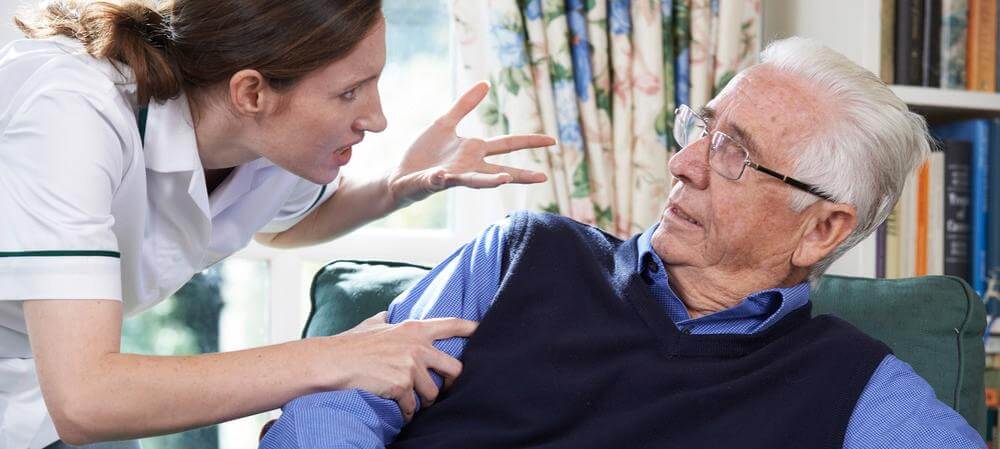Nursing homes are supposed to offer a safe environment in which our senior loved ones can be comfortable. However, as any nursing home abuse lawyer in Lakeland knows well, residents may face mistreatment. Given the prevalence of elder abuse, it’s natural to worry about your elderly parent or relative when you place them in a care facility.
Some individuals are willing and able to disclose if something bad happens to them. However, others may not have the mental capacity to tell you what’s happening, or they may be too scared or embarrassed. That’s why you need to be vigilant.
Types Of Elder Abuse
Elder abuse can happen in several different ways.
Physical Abuse
This refers to any activity that results in injury or bodily harm. It includes kicking, hitting, shoving or burning an individual. Tying the person to the bed, locking them in a room or giving them drugs that were not prescribed by their doctor are also considered abuse.
If your loved one is being physically abused, you may notice:
- Unexplained bruises, cuts, burns or bleeding
- Broken bones or sprains
- Recurring injuries
- Reluctance to see the doctor
If you suspect physical abuse, you must contact a nursing home abuse lawyer in Lakeland.
Sexual Abuse
This refers to when a nursing home resident is forced to engage in any type of sexual activity. It is by no means limited to rape and it includes inappropriate touching and forcing the individual to look at pornographic content. You may notice both physical and behavioral indicators if someone is sexually abusing your elderly friend or relative. These include:
- Torn or bloody underwear and other clothing
- Sexually transmitted diseases
- Bruises on the genitals, breasts or both sides of the body
- Bleeding from the vagina or anus
Psychological Abuse
Abuse doesn’t have to be physical. Hurting a nursing home resident emotionally is equally serious. Yelling, issuing threats, and constantly ignoring the individual are all forms of abuse. If your loved one is being psychologically abused, there won’t be any physical signs. However, the individual may start behaving differently around you and other people.
They may:
- Rock back and forth or mumble to themselves
- Appear frightened or withdrawn
- Be confused or depressed
- Lose interest in things they once enjoyed
Financial Abuse
Taking a resident’s money or property without their permission is also a form of abuse. Someone may be using your loved one’s credit cards without their permission or forging their signature on cheques or other documents. Forcing someone to alter their will or power of attorney can also be considered financial abuse.
Some of the things you need to look out for include:
- Unexplained bank account withdrawals
- Signatures that appear to be forged
- Comments about a new friend who is assisting with financial matters
Neglect
Not taking action can also be abusive. Neglect refers to when caregivers don’t offer proper care to residents. They may not give them sufficient food or water or they may not help them with bathing, dressing, and going to the bathroom. Neglect often occurs when nursing homes are understaffed or the staff are inadequately trained.
If your loved one is being neglected, you should be able to spot it. Signs include:
- Sudden weight loss or loss of appetite
- Bedsores
- A messy unkempt appearance
- Skin rashes
- Missing or broken eyeglasses, denture, walkers or hearing aids
What You Can Do If You Suspect Abuse
If you notice any of the signs of nursing home abuse that we’ve identified, you should speak up. This could save the life of your loved one and other residents. Try to talk to the individual in private and see if they will open up. Let them know you’re concerned that something is wrong and assure them that you want to help them no matter what has happened. If you suspect the person is in immediate danger or they identify someone who is harming them, you should call 911. If the situation isn’t urgent, call Adult Protective Services and a nursing home abuse lawyer in Lakeland.
Call Burnetti P.A. Today To Discuss Your Case
You’ll need to move quickly not just to protect your loved one but to ensure they get justice. Nursing home abuse cases must be reported within two years if you want a chance at getting compensation. You will need to contact a lawyer as soon as possible so they can begin looking into the situation. Call our nursing home abuse lawyer in Lakeland today for a free case evaluation. Older people deserve to be protected and we’re here to help ensure they don’t get mistreated.



